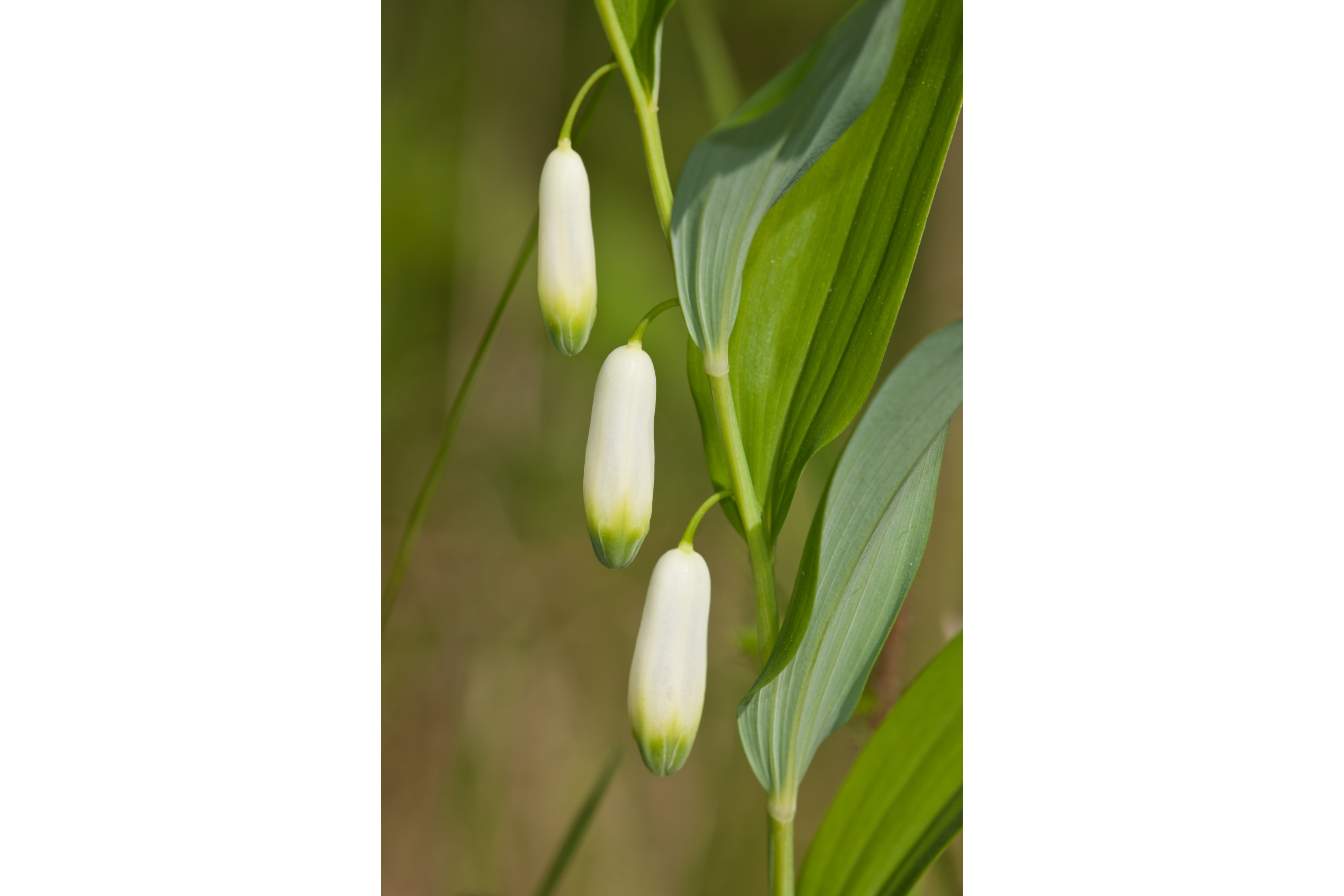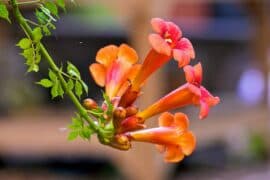Eurasian Solomon'S Seal
(Polygonatum multiflorum)

Description
Polygonatum multiflorum, the Solomon's seal, David's harp, ladder-to-heaven or Eurasian Solomon's seal, is a species of flowering plant in the family Asparagaceae, native to Europe and temperate Asia. In Britain it is one of three native species of the genus, the others being P. odoratum and P. verticillatum. It is a rhizomatous perennial growing to 90 cm (35 in) tall by 25 cm (10 in) broad, with arching stems of alternate leaves, and slightly necked, pendent tubular white flowers with green tips, hanging from the undersides of the stems. It is valued in cultivation for its ability to colonise shady areas, and is suitable for a woodland style planting. The specific epithet multiflorum means "many-flowered". The hybrid Polygonatum hybridum (P. multiflorum × P. odoratum) has gained the Royal Horticultural Society's Award of Garden Merit. Polygonatum also known as King Solomon's-seal or Solomon's seal, is a genus of flowering plants. In the APG III classification system, it is placed in the family Asparagaceae, subfamily Nolinoideae (formerly the family Ruscaceae). It has also been classified in the former family Convallariaceae and, like many lilioid monocots, was formerly classified in the lily family, Liliaceae. The genus is distributed throughout the temperate Northern Hemisphere. Most of the approximately 63 species occur in Asia, with 20 endemic to China. Polygonatum comes from the ancient Greek for "many knees", referring to the multiple jointed rhizome. One explanation for the derivation of the common name "Solomon's seal" is that the roots bear depressions which resemble royal seals. Another is that the cut roots resemble Hebrew characters. The fruits are red or black berries.
Taxonomic tree:







